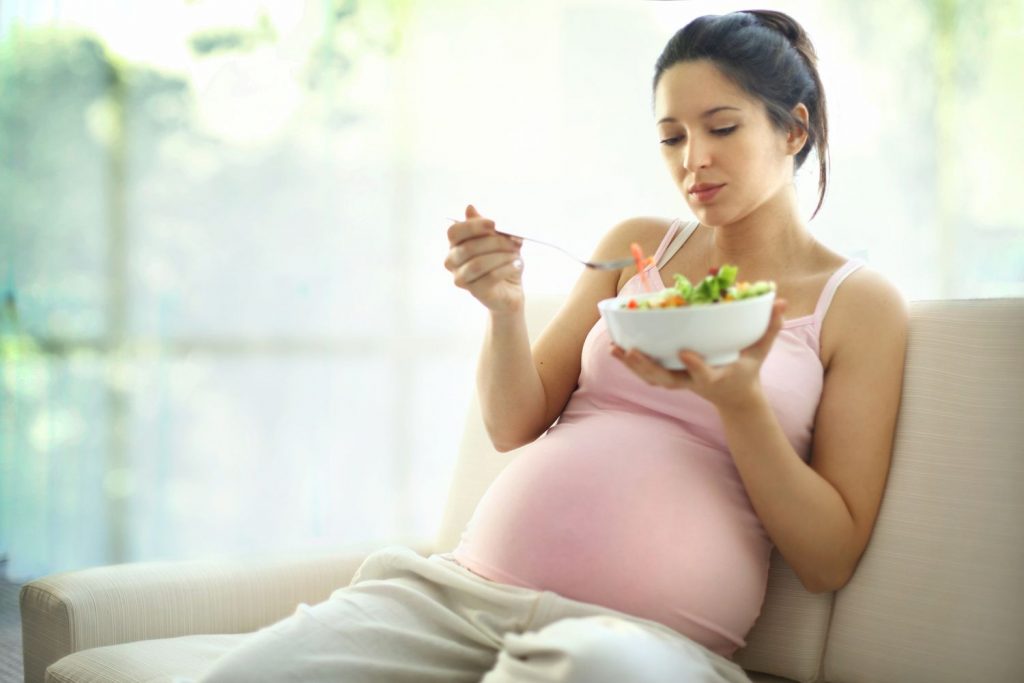When you have food poisoning, you’ve eaten anything that has given your body a bad reaction by containing bacteria, a virus, or a toxin. Food poisoning symptoms, which are unpleasant for anyone to experience and frequently include vomiting, nausea, or diarrhea, are common.
Food sickness may be stressful during pregnancy. You feel sick and are also concerned about the well-being of your unborn child. Food poisoning can be severe if it occurs while you are pregnant. You must call your doctor right away if you become ill from food poisoning while expecting.
For a good reason, pregnant women should be concerned about food safety. Miscarriage, stillbirth, or early delivery are possible worst-case outcomes.
Because of the changes to their metabolic and circulatory systems during pregnancy, food poisoning is more likely to affect pregnant women. See below for information on the causes, symptoms, and treatments of food poisoning in pregnant women.
Pregnancy-Related Food Poisoning Causes
Your immune system changes during pregnancy, making you more vulnerable to foodborne infections, according to the U.S. Food and Drug Administration (FDA). Your hormones are changing, which is primarily to blame for your reduced immunity.
Most of the energy your body produces while you’re pregnant is used up by the development of your unborn child. Pregnant women should be cautious about what they consume and how it is cooked because of this.
Your baby’s immune system is also still developing. It may be risky for them if they contract food poisoning.
Food Poisoning Symptoms During Pregnancy
In addition to nausea, vomiting, and diarrhea, frequent pregnancy food poisoning symptoms include:
- stomach pain or discomfort
- fever
- headache
- dehydration
- bloody feces
It can be challenging to determine whether pregnancy-related symptoms like nausea and vomiting are due to food poisoning because of the ongoing changes your body goes through.
Search for symptoms that appear unexpectedly or have an unusual feeling. For the best chance of excluding an illness or virus, it is preferable to speak with your doctor if you are unsure.
Natural Treatments for Food Poisoning During Pregnancy
When you are pregnant, you are safeguarding more than just your health. Because of their immature immune systems, babies might experience certain complications from food sickness.
Call your doctor as soon as you notice any symptoms that could indicate food poisoning. They can assist you in determining whether you have food poisoning and, if so, what could have contributed to it.
With your doctor’s advice, you might be able to manage your symptoms at home. The doctor’s office or a hospital may need to treat you if you’re vomiting and having diarrhea. Without first seeing your doctor, avoid using any over-the-counter drugs. Work on getting enough rest and rehydrating if your condition is light enough to be treated at home. A sports drink containing electrolytes is another way to get fluids: ice chips, little sips of water, or other clear liquids, or by drinking them all at once. Before attempting to eat, wait until you’re certain that your vomiting has stopped. Keep your first few meals plain and free of grease as you ease into eating.
Many Forms Of Food Poisoning
Food poisoning’s most typical forms include:
- norovirus
- listeria
- Salmonella
- E. coli
All of these conditions during pregnancy can be deadly if untreated. Make sure to contact your doctor as soon as you can if you suspect food poisoning or another foodborne illness. If you think you became ill after eating out, get in touch with your neighborhood health office. If there is a significant outbreak of a foodborne illness in your region, they can look into it.
Pregnancy-Related Food Poisoning Treatment
One of the most prevalent consequences of food poisoning is dehydration. This is a result of your current bouts of diarrhea and vomiting.
It’s crucial to increase water intake to replace lost fluids. Start by taking a small sip of water if you’re throwing up, and keep doing so until you can drink liquids without feeling sick. then gradually increase from there.
Remember that water makes up the majority of your body. It serves as the body’s primary sanitizer, flusher, and detoxifier. If you drink water consistently, your body will heal from illness more quickly.
Water therapy is the least expensive and most effective way to help your body heal. In a perfect world, getting pure, clean water would involve using a reliable home filter or bottle.
If you experience dehydration, inform your doctor. Pregnancy-related severe dehydration may necessitate hospitalization or intravenous fluids.
Obstetric Complications From Food Poisoning
- Dehydration may not be the worst consequence of food poisoning. There are very few instances where norovirus causes malnutrition.
- The listeria infection could cause long-term brain development issues for your fetus. Bloody stools are frequently a sign of E. coli infection and can lead to renal failure or damage to the blood vessel lining.
- Salmonella can result in bacteremia, reactive arthritis, and meningitis.
- Food poisoning occasionally results in miscarriage or stillbirth.
It’s important to watch what you eat while pregnant because of these reasons.
Avoiding Foodborne Illness When Pregnant
Being pregnant calls for careful eating. Follow your doctor’s advice for food preparation to the letter and abstain from anything that isn’t advised for consumption while pregnant to avoid getting sick.
By employing several preventative measures, you can lessen your risk of developing food poisoning while pregnant.
When you’re cooking, keep these suggestions in mind.
Feed Safety Advice
- Foods should be kept raw and cooked separately.
- Avoid dairy products that are raw or unpasteurized.
- Using a meat thermometer is not required when cooking uncooked beef; high temperatures render some harmful microorganisms inert.
- Avoid buying meat that has been pre-packaged at all costs.
- Before eating, thoroughly wash all fruits and vegetables.
- Safely store perishable goods.
- Observe the expiry dates.
- To keep food as fresh as possible, store it in the freezer.
- Food ought to be defrosted before being left out at room temperature.
Avoid These Foods And Drinks While Pregnant:
- raw or undercooked meat, poultry, seafood, and eggs
- juices produced from unpasteurized fruits or vegetables
- Non-pasteurized milk products
- spreads with meat or cheese-packed meats
What To Remember
Even more so while pregnant, treating minor food poisoning symptoms may necessitate a great deal of trial and error. To determine the best course of treatment for you, see your doctor.
It’s not always possible to cure food poisoning at home. Medications may be suggested and prescribed by your doctor.
If the case of food poisoning is more serious, antibiotics may be required. When treating listeria in pregnant women, hospitalization and intravenous antibiotic therapy are frequently used.
Resources
- How to stay safe from salmonella poisoning. (2018).
health.clevelandclinic.org/how-to-stay-safe-from-salmonella-poisoning/ - Mayo Clinic Staff. (2017). Food poisoning.
mayoclinic.org/diseases-conditions/food-poisoning/symptoms-causes/syc-20356230 - What is foodborne illness? Food safety for moms to be. (2018).
fda.gov/Food/FoodborneIllnessContaminants/PeopleAtRisk/ucm083316.htm













